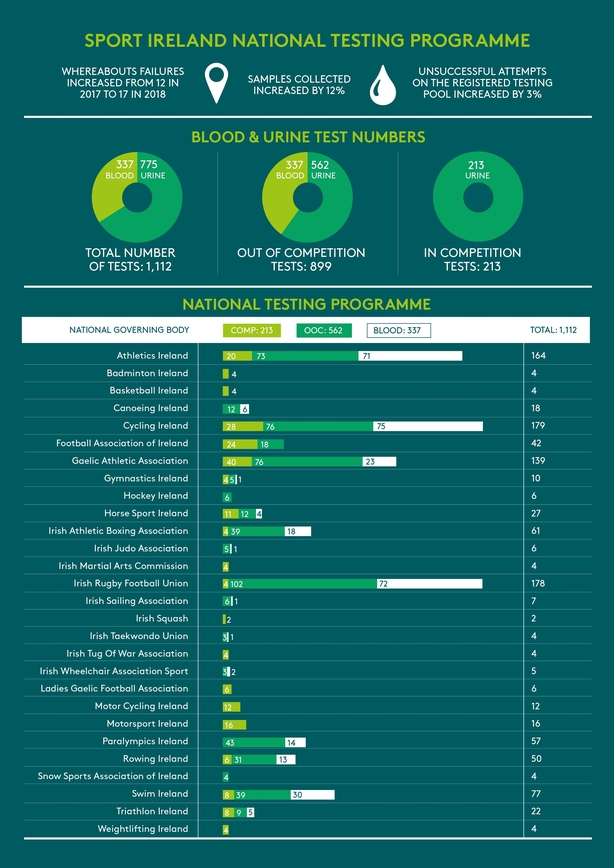Sport Ireland's anti-doping report for 2018 has revealed that there was only one failed test among the 1,112 carried out last year.
That was the case of boxer Evan Metcalfe, who tested positive for a byproduct of cannabis and was stripped of his Irish bantamweight amateur title and banned for four months as a result.
Rugby is now the second most tested sport in the country - there were 178 tests compared to 179 in cycling. Athletics was third with 164 tests and the GAA fourth with 139.
Swimming (77), Paralympics (57), rowing (50) and soccer (42) all had significant numbers of athletes tested.
There were 24 therapeutic use exemptions (TUEs) granted last year, from 58 applications. Six of those permissions to use proscribed substances for medical reasons were to rugby players, four for football and two each for cycling, golf and shooting.
There was a 12% increase in the total number of tests, 80% of which were done out of competition.
The number of 'whereabouts failures', when athletes fail to correctly inform testers where they will be, increased from 12 in 2017 to 17.

When asked whether the low rate of positive tests was a sign that cheating was less widespread or that dopers were simply finding ways to avoid being detected, Dr Una May, Director of Participation and Ethics at Sport Ireland, told RTÉ Sport: "That's always the million-dollar question.
"I think we're doing a pretty good job. I think we're geting the message across to athletes.
"We're reducing the number of inadvertent doping offences, where people take something without realising it, in a supplement or something like that, but if an athlete does decide to dope we will have a programme in place that is going to deter and catch those who do it."

